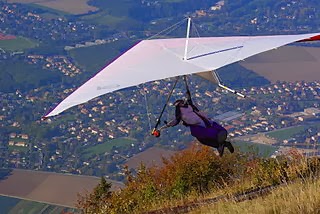This week in SAVMP we are asked to consider
what makes a great team mate.
“Leaders should never work in isolation and the best one’s
often create teams that will ensure they are doing what is best for kids. In a previous article I posted on my own
blog, I share some of the attributes that I look for in a great Assistant
Principal. I would like to challenge you
to think and share what you look for in a “leadership partner”? (George Couros)
I have a quote from Peter Drucker, business guru, on the bulletin board in my office " the task of leadership is to align strengths in such a way that weaknesses are irrelevant.” I have spent considerable time considering the strengths and talents (and areas for growth and even out right weakness) of those I work with. In my more usual job I serve in a role akin to a public school Vice Principal shared across divisions and help our Lower, Middle, and Upper School Principals with curriculum development and faculty evaluations. Reporting to the Head of School I also help the him with special projects. In this role I see myself as the team member rather the constructor of the team. As interim Principal I inherited the team constructed by my predecessors. In all cases I see my task as seeking out the best partners from my co-workers and drawing out their strengths.
In thinking about the attributes I most value in my educational partners I would lift up the following three:
1) A relentless, laser focus on our mission as a school; the corollary would be a comfort with saying "no, that's not what we do." As an independent school with a very specific and aspirational mission in a very competitive market, decisions have to be consonant with our mission and sensitive to our student market. This is no easy task. In the end, mission has to trump all else. Our mission, in the limits it imposes, fosters incredible opportunities for creativity. Some of my best partners have challenged me to remain within the mission even as we are forging new ground with approaches to program and personnel development.
2) Willingness to always put students first: Teaching in any school is exhausting, in a boarding school the exhaustion can be relentless. In every conversation about balance of life or pace of life for teachers the danger is to put the needs of the adults above the needs of the students. Whether its designing a new student leadership selection process or implementing a 1 to 1 program or creating a new schedule, I want a partner who understands that what serves our students best will in the end serve the adults well too. I am not suggesting that the students run amok or are spoiled or catered too. Rather, the school and its systems are here to serve and educate our students (from within our mission!).
3) Risk taking/confidence/moxie: When I was a full time class room teacher, I experimented with my curriculum, pedagogy, and assessments as a matter of course. I thought everyone did. In a recent meeting, when a well respected, mid-career colleague said that for our emphasis on Action Based Learning to Work, she needed permission to fail, I was reminded once again that my habit of leaping before I looked is not the norm. Many of my colleagues want permission first. While I appreciate caution, I seek out partners who are willing to try something new, have the confidence to be wrong, enjoy taking a creative approach, and are willing to challenge me. I am most impressed when this confidence is accompanied by a genuine unassuming manner.
There are other characteristics I value, not the least a willingness to challenge my assumptions and present alternative ideas. But when it comes to courageous leadership I find the three I listed invaluable.














